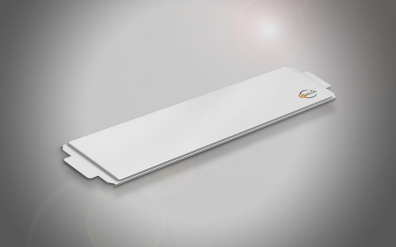
Farasis Energy has hit a huge milestone in the company’s journey to developing a million-mile battery. Only a small handful of companies worldwide have managed to achieve the feat, and the company’s recent testing session has added their name to that list.
Six Years of Comprehensive Testing
Farasis recently wrapped up million-mile battery testing for its new NMC chemistry cells, the P75 and P73, cycling each battery cell over 5000 times. The process requires 24-36 months of accelerated testing to get right. The development and testing process for these NMC cells has been in progress since 2018.
Six years of rigorous testing proved to be worth the wait. After Farasis completed the testing, the company announced battery packs that use their NMC cells will power vehicles for a million miles over 15 years while retaining over 70% of their capacity.
The testing process involved cycling the battery cells under varying circumstances to mimic real-world conditions, not just industry-standard testing conditions. These conditions included fast charging, varying temperatures, and different pressure conditions. In the end, the cells proved capable of handling a wide range of strenuous conditions they may face on the road
Cutting-Edge Materials and Technology
The cells’ extended cycle life is made possible by cutting-edge materials and optimized charging techniques. A semi-solid gel coats the separators to minimize electrolyte use while maintaining exceptional ion conductivity and chemical stability. The charging method reduces capacity loss by minimizing lithium plating and reducing heat generation.
Farasis created unique packing technologies to keep the cells safe while allowing them to regulate temperature and retain their energy over extended periods of time. The batteries can achieve an energy density of up to 285 Wh/kg and reach a full charge in 20-30 minutes.
Positive US Market Impact
The revolution of a million-mile battery has the opportunity to make a positive difference on the United States economy. Across both commercial and passenger applications, the use of this technology could offer greater reliability, higher energy density, and better longevity in electric vehicle applications.
Commercial Vehicles
Commercial vehicles, such as buses and trucks, spend a majority of their lifespans driving on the road. On average, transit buses travel nearly 45,000 miles each year, and the Federal Transit Administration (FTA) generally marks the end of their vehicle life as 12 years or 500,000 miles. In addition to the emissions eliminated by going electric, a million mile battery offers public transit buses the chance to double their vehicle lifespan. This reduces the long-term need for significant investment into public transportation while still meeting the population’s travel needs and reducing the country’s carbon footprint.
Over-the-road truck drivers, who play a vital role in the health of the US economy, will also benefit from this new advancement in lithium battery technology. Depending on whether they transport regionally, nationally or even internationally, truck drivers tend to put significant miles under their belts. A million-mile battery with a quick charge time could help get drivers back on the road quicker and greatly extend the lifespan of their vehicles.
Passenger Vehicles
EVs continue to be a hot topic of discussion in the US, particularly their current limitations and shortcomings. Only 1% of consumer EVs today last beyond 200,000 miles. A battery that lasts a million miles would likely outlive the car that it’s powering, opening up the opportunity for battery recycling, potentially boosting EV affordability and availability on the market. As with other fully electric transport solutions, it could also give more consumers the chance to reduce their carbon footprint as a more manageable price point.
EVTOL
Last, it’s notable that top players in the electric vehicle takeoff and landing (eVToL) market have independently evaluated these cells, finding them to last over 10,000 flight cycles. As eVToL technology advances, the advantages of a longer-lasting cell will be critical to safety, reliability and cost-competitiveness for the industry.
One Step Closer to a Cleaner Economy
Farasis’ progress has brought the US one step closer to a cleaner, more efficient future. After undergoing years of rigorous testing, these battery cells proved to have the potential to impact the US economy and the future of a wide range of industries. The journey towards achieving a million-mile battery hasn’t been a simple one, but the end result has made the years of research and testing worth it.
About Farasis Energy
Farasis Energy is a leading developer and manufacturer of high-performance battery technology and pouch cells for electric mobility and other sustainable power storage solutions. Founded in 2002 by Dr. Keith Kepler and Dr. Yu Wang in California, the company now operates research and development centers in China, Germany, and the United States. There are currently two production facilities in Ganzhou and Zhenjiang (China), with further production facilities being built by 2025, thereby increasing total planned capacity to 145 GWh/a. A new battery plant is also being built in Gemlik (Turkey) with the establishment of the Siro joint venture between Turkish electric car manufacturer Togg and Farasis Energy, which produces modules and packs since March 2023. With more than twenty years of experience in research and development and with nearly 300 patents, Farasis Energy is shaping the future of electric mobility as a pioneer. In addition to Togg, its major strategic partners also include companies such as Mercedes-Benz and Geely.


